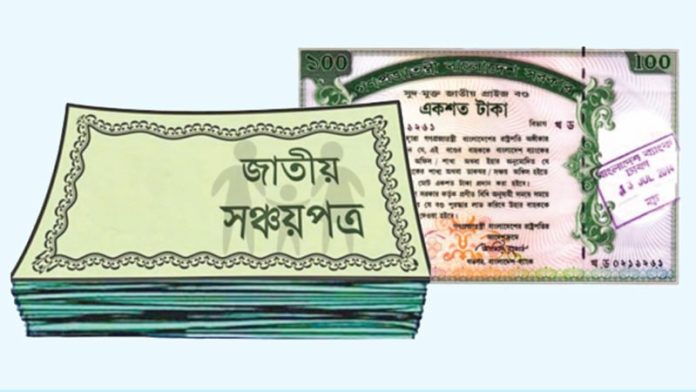The central bank is stopping the sale of savings certificates and prize bonds through its counters.
In addition, Bangladesh Bank the regulatory authority of the banking sector will no longer provide torn or damaged banknote exchange services or automated treasury challan services directly to customers. Starting from November 30, these services will initially be discontinued at Bangladesh Bank’s Motijheel office.
Gradually, all other offices outside Dhaka will also stop providing these services. However, Bangladesh Bank will increase monitoring to ensure that commercial banks provide these services smoothly. A public awareness campaign will soon be launched to inform customers about these changes. The central bank has already communicated these decisions to the Ministry of Finance.
Savings certificates are available at all state-owned and private commercial banks, the Directorate of National Savings, and post offices—except Bangladesh Bank. Prize bonds are sold at all bank branches. Banks also offer torn note exchange and automated challan services. Yet many customers prefer Bangladesh Bank due to hassle-free service and greater trust. As of September, customers held Tk 3,40,445 crore worth of savings certificates, more than 30% of which were managed at Bangladesh Bank’s Motijheel office.
Last month, a server fraud incident at the Motijheel office was uncovered, involving the embezzlement of Tk 25 lakh in savings certificates. Another attempt to embezzle Tk 50 lakh was prevented at the last moment. A case has been filed against four individuals with the Motijheel Police Station, and multiple investigation committees are working on the matter. However, officials say the decision to stop customer services is not directly tied to the server fraud incident.
AHM Shafiquzzaman, president of CAB (Consumers Association of Bangladesh), told Media that the central bank is not meant to conduct commercial activities. If it does, large customer crowds can compromise security. Therefore, stopping such services at the central bank is not a problem. However, Bangladesh Bank must ensure that customers do not suffer at commercial banks and that those institutions provide proper services.
The Motijheel office currently offers four types of services through 28 counters, of which only 12 counters will remain active. These 12 counters will conduct transactions only with banks—not with customers. Currently, there are eight counters for exchanging torn notes and two for coin or metal currency transactions; six of these will remain operational. There are also five counters for treasury challans, two for prize bond exchange, two for selling and paying profits on savings certificates, and one for commemorative coin sales.
One counter each for savings certificates, prize bonds, and challan-related services will remain operational. Additionally, three challan receiving counters will stay open while the rest will be closed. Gradually, customer services at Bangladesh Bank’s offices in Chattogram, Khulna, Sylhet, Rajshahi, Rangpur, Bogura, and Barishal will also be discontinued. Exact dates have not yet been determined.
According to a Bangladesh Bank report, Governor Dr. Ahsan H. Mansur visited the cash department of the Motijheel office on June 22 and gave directives on modernizing the department. A committee was formed afterward, and the current decisions are based on its recommendations. Earlier, on August 18 and September 22, meetings were held to determine next steps. It was noted that two previous governors also tried to stop customer-related services, but the plan could not be implemented due to circumstances at the time.
A Bangladesh Bank official told Media that no central bank in the world provides direct over-the-counter services to the general public in this manner. As a Key Point Installation (KPI), security is a priority, prompting the decision to stop customer services. However, monitoring will be strengthened to ensure customers do not face inconvenience. Banks will be required to quickly exchange torn notes. Payments of interest and principal on all savings certificates will continue through Bangladesh Bank’s EFTN system. Employees working at these counters will be reassigned elsewhere.


